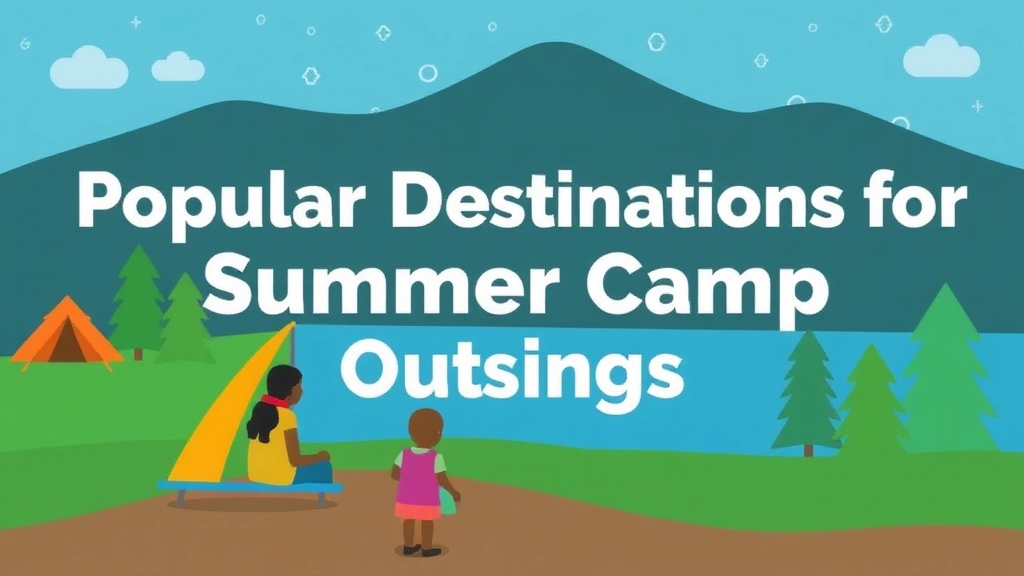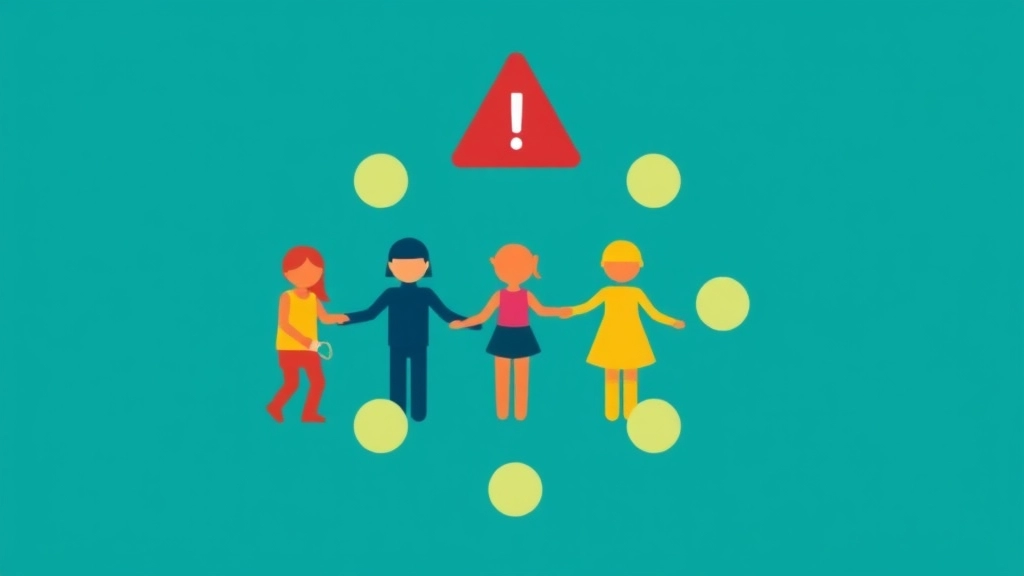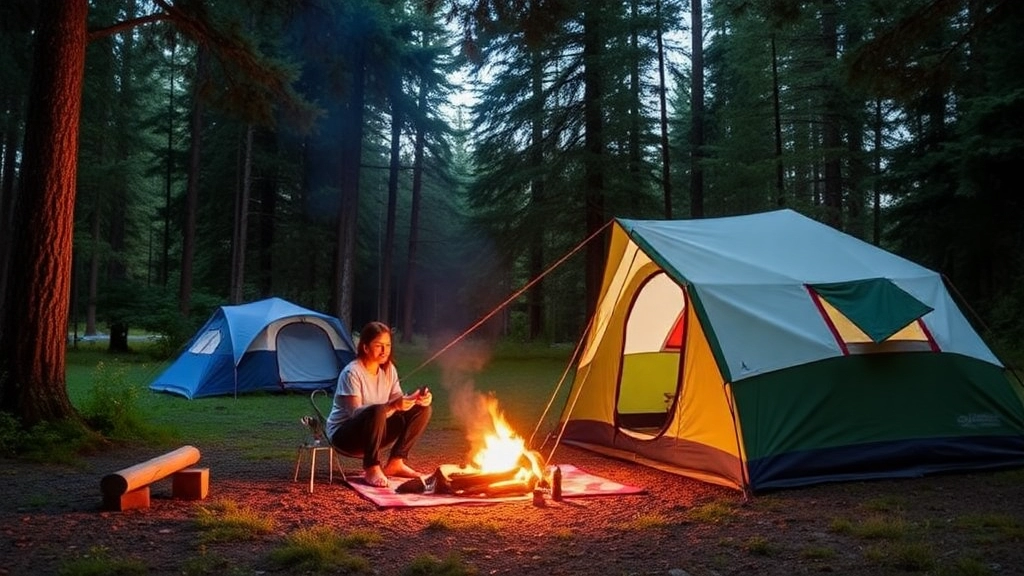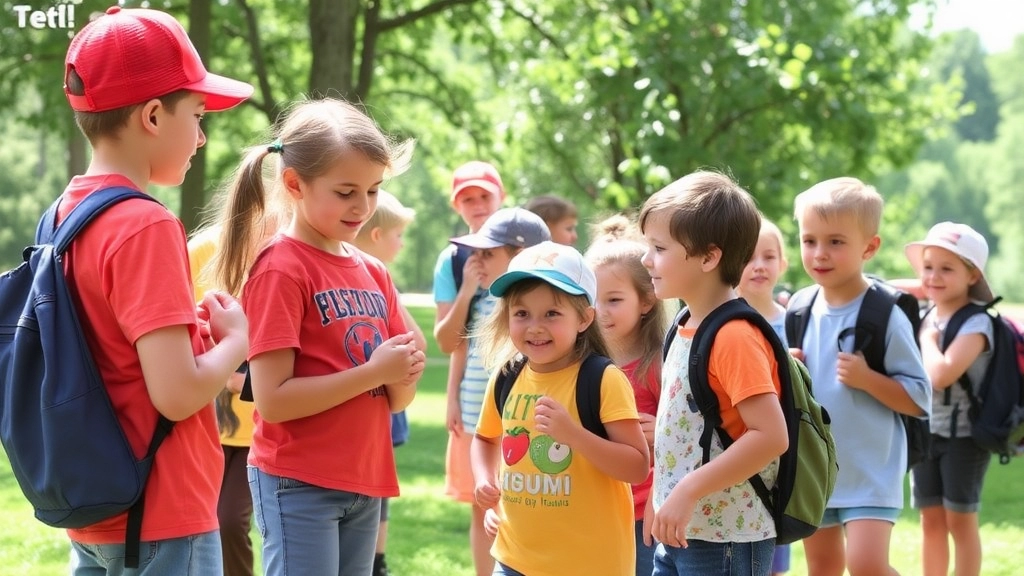Organizing Summer Camp Field Trips
Organizing summer camp field trips can be a daunting task, but with the right planning and strategies, it can be an incredibly rewarding experience for both campers and staff. This article will guide you through the essential steps for planning successful outings, from choosing popular destinations and understanding the educational benefits to implementing crucial safety measures and managing budgets effectively. Let’s dive into the world of summer camp field trips and make your next outing an unforgettable adventure.
Exploring Various Aspects
We will explore various aspects of summer camp field trips, including tips for organizing engaging activities, the importance of parental involvement and communication, and methods for evaluating the success of your trips. Whether you’re a seasoned camp organizer or a newbie, this comprehensive guide will provide you with practical insights and real-life examples to ensure your summer camp field trips are both fun and educational. Ready to make your next camp outing a hit? Let’s get started!
Planning for Summer Camp Field Trips
Planning for summer camp field trips can feel like juggling flaming torches while riding a unicycle. It’s a lot, but it doesn’t have to be a circus act. Let’s break it down into manageable chunks that make the whole process a breeze.
Why is Planning Important?
Ever tried to wing a field trip? Yeah, it doesn’t end well. Proper planning is crucial to ensure that the trip is safe, educational, and loads of fun for everyone involved. It also keeps you from pulling your hair out when things don’t go as planned.
Key Questions to Ask
Start with the basics. Here are some questions that should be at the top of your list:
- What are the goals of the trip? Are you aiming for educational value, physical activity, or just plain fun?
- What’s the budget? Knowing your financial limits helps narrow down options.
- How many kids and staff are going? This affects everything from transportation to food.
- What are the safety concerns? Always plan for the unexpected.
Setting Clear Goals
Having a clear goal makes planning smoother. Are you looking to teach kids about nature? Maybe you want them to learn teamwork through some challenging activities. Whatever it is, write it down. Goals keep you focused and help you measure success later.
Budget and Logistics
Money matters. You can’t plan a trip to a fancy amusement park on a shoestring budget. Here’s how to get your finances in order:
- List all potential expenses: Transport, entry fees, food, and emergency funds.
- Look for deals and discounts: Many places offer group rates or educational discounts.
- Fundraising: If the budget is tight, consider fundraising options like bake sales or sponsorships.
Safety First
Safety is non-negotiable. Here’s how to keep everyone safe:
- Emergency contacts: Have a list of emergency contacts for all participants.
- First aid kits: Always carry a well-stocked first aid kit.
- Staff training: Ensure your staff knows basic first aid and emergency procedures.
- Permissions: Make sure you have all the necessary permissions and waivers signed by parents.
Itinerary and Communication
A well-planned itinerary can make or break your trip. Here’s what to include:
- Detailed schedule: Include times for departure, activities, meals, and return.
- Contact information: Share contact details of key staff members with parents.
- Updates: Keep parents in the loop with regular updates before, during, and after the trip.
Real-Life Example
Let me share a story. Last summer, we planned a trip to a local science museum. We had a tight budget and a group of 50 kids. By setting clear goals (educational and fun), securing group discounts, and preparing a detailed itinerary, the trip was a smashing success. Parents were thrilled, kids learned a lot, and everyone stayed safe.
Final Thoughts
Planning for summer camp field trips doesn’t have to be stressful. With clear goals, a solid budget, and a focus on safety, you can organise an outing that’s both fun and educational. Remember, the keyword here is “planning.” It’s the foundation of a successful trip. So, get your ducks in a row, and you’ll be on your way to an unforgettable experience.
For more ideas on creating engaging summer camp experiences, check out our Summer Camp Activities: Fun and Learning Combined guide. Additionally, if you’re looking for creative ways to promote your camp, our Eye-Catching Summer Camp Poster Design Tips can be a great resource.
Popular Destinations for Summer Camp Outings

Ever wondered where to take the kids for a summer camp outing?
Choosing the right destination can make or break the experience.
Let’s dive into some top picks that are sure to keep everyone entertained and engaged.
National Parks
Who doesn’t love a good hike?
National parks offer a mix of adventure and education.
- Hiking Trails: Perfect for physical activity and exploring nature.
- Wildlife Watching: Spotting animals in their natural habitat is a thrill.
- Educational Programs: Many parks offer ranger-led activities.
Museums
Museums aren’t just for rainy days.
They’re treasure troves of knowledge.
- Science Museums: Interactive exhibits that make learning fun.
- History Museums: Step back in time and see how people lived.
- Art Galleries: Spark creativity and appreciation for the arts.
Zoos and Aquariums
Kids love animals.
Zoos and aquariums are always a hit.
- Animal Encounters: Get up close and personal with various species.
- Educational Talks: Learn fascinating facts about the animal kingdom.
- Conservation Programs: Understand the importance of protecting wildlife.
Adventure Parks
Looking for some adrenaline?
Adventure parks are the way to go.
- Ropes Courses: Test your balance and bravery.
- Zip Lines: Fly through the air and get a bird’s eye view.
- Climbing Walls: Challenge yourself and reach new heights.
Beaches and Lakes
Nothing says summer like water activities.
Beaches and lakes offer endless fun.
- Swimming: Cool off and splash around.
- Boating: Paddleboats, canoes, or kayaks – take your pick.
- Sandcastle Building: Let the creativity flow.
Farms and Petting Zoos
For a more relaxed outing, consider a farm visit.
- Animal Feeding: Hands-on experience with friendly farm animals.
- Planting Activities: Learn about growing food.
- Hayrides: Classic and fun for all ages.
Amusement Parks
Sometimes, you just need a day of pure fun.
- Rides and Attractions: From roller coasters to merry-go-rounds.
- Live Shows: Entertaining performances for all.
- Games and Prizes: Test your skills and win something cool.
Educational Benefits of Summer Camp Field Trips
Ever wonder if summer camp field trips are worth the hassle? You’re not alone. Many parents and camp organisers ponder the real educational benefits of these outings. Let’s break it down.
Why Field Trips Matter
Field trips aren’t just about escaping the camp routine. They pack a punch when it comes to learning. Here’s why:
- Real-World Learning: Kids see concepts in action. Imagine a trip to a science museum where theories leap off the page and into real life.
- Hands-On Experience: Unlike classroom learning, field trips allow kids to touch, feel, and interact. It’s like learning on steroids.
- Cultural Exposure: Visiting historical sites or cultural festivals broadens horizons. It’s a chance for kids to step into different worlds.
Boosting Social Skills
Field trips are a social playground. Kids learn:
- Teamwork: Working together on a scavenger hunt or group activity.
- Communication: Chatting with peers and guides sharpens their speaking and listening skills.
- Independence: Navigating new environments boosts confidence.
Stories from the Field
Take a trip to a local farm. Kids see where their food comes from, meet the animals, and maybe even milk a cow. It’s education wrapped in fun.
Or consider a visit to an art gallery. Watching kids interpret and discuss paintings is like witnessing little sparks of creativity.
Tying It All Together
Field trips are more than a day outâthey’re a vital part of camp life. They offer a blend of education, social interaction, and personal growth.
Safety Measures for Camp Field Trips

Ever worry about the safety of your kids on camp field trips?
You’re not alone.
Safety is a big deal, and it’s on every parent’s mind.
So, let’s break it down.
Why Safety Measures Matter
First off, why are safety measures so crucial?
Because accidents can happen.
But, with the right precautions, you can minimise risks and keep everyone safe.
Top Safety Tips
Here’s a no-nonsense list to keep things safe and sound:
- Headcounts: Always do headcounts before, during, and after the trip.
- Emergency Contacts: Keep a list of emergency contacts for every camper.
- First Aid Kits: Have a well-stocked first aid kit on hand.
- Buddy System: Pair up campers to look out for each other.
- Safety Briefings: Give clear instructions and safety guidelines before you head out.
Real-Life Example
Imagine this: You’re taking a group of kids to the zoo.
Before you go, you gather everyone and explain the buddy system.
You tell them what to do if they get lost.
You’ve got your first aid kit ready and a list of emergency contacts in your pocket.
Now, you can focus on the fun stuff, knowing you’ve got safety covered.
Internal Linking
For more tips on planning, check out our section on Planning for Summer Camp Field Trips.
And don’t forget to see how you can make these trips educational in Educational Benefits of Summer Camp Field Trips.
Budgeting and Fundraising for Field Trips
Alright, let’s get real. Planning summer camp field trips can feel like you’re trying to squeeze water from a stone. How do you make it happen without breaking the bank? Budgeting and fundraising are your best mates here. Let’s dive in.
The Real Questions
- How much is this going to cost?
- Where’s the money coming from?
- How do we make sure we don’t run out of funds halfway?
Start with a Solid Budget Plan
First things first, you need a budget. Here’s how to break it down:
- Transportation Costs: Whether it’s a bus or a bunch of carpooling parents, get those numbers down.
- Admission Fees: Museums, parks, and other attractions usually have group rates. Find out what they are.
- Food and Snacks: Kids get hungry. Plan for meals and snacks. Consider checking out our Summer Camp Lunch Ideas for some inspiration.
- Miscellaneous Expenses: Think about first aid kits, extra sunscreen, and any other unexpected costs.
Fundraising: The Lifeline
Now, how do we get the cash? Fundraising can be a game-changer. Here are a few tried-and-true methods:
- Bake Sales: Simple, effective, and everyone loves a good brownie.
- Car Washes: Kids get involved, and it’s a fun way to raise money.
- Crowdfunding: Platforms like GoFundMe can reach a wide audience.
- Sponsorships: Local businesses often love to support community events.
Real-Life Example
I remember one summer, we were short on funds for a trip to the science museum. We organised a bake sale and a car wash over two weekends. Not only did we hit our target, but we also had extra funds for ice cream treats during the trip. The kids were thrilled, and the parents appreciated the community effort.
Keep Track of Everything
Use a simple spreadsheet to track income and expenses. This keeps you organised and helps avoid any nasty surprises. For more tips on managing camp costs, visit our Summer Camp Costs Guide.
Internal Linking Opportunities
If you’re still with me, you might want to check out our section on Safety Measures for Camp Field Trips. After all, budgeting is crucial, but safety is paramount.
Tips for Organising Successful Camp Outings

Let’s face it, organising a camp outing can feel like trying to herd cats.
How do you keep everyone happy, safe, and engaged?
Here are some killer tips to make your camp outings a smashing success.
Plan Ahead
First things first, plan ahead.
I can’t stress this enough.
- Start planning months in advance.
- Make a checklist.
- Book your destinations early.
Trust me, last-minute changes are a nightmare.
Know Your Group
Who’s coming along?
Kids have different needs and interests.
- Get to know their preferences.
- Are they into sports, nature, or history?
- Tailor your activities to suit the group.
Safety First
Safety is non-negotiable.
- Conduct a risk assessment.
- Have first-aid kits ready.
- Make sure all staff are trained in emergency procedures.
Budget Wisely
Money matters.
- Set a budget and stick to it.
- Consider transport, entry fees, and meals.
- Look for group discounts.
Engage the Kids
Bored kids are unhappy kids.
- Plan interactive activities.
- Include games and challenges.
- Keep them moving and engaged.
Communicate Clearly
Keep everyone in the loop.
- Send out itineraries.
- Use social media or apps for updates.
- Make sure parents know the plan.
Evaluate and Improve
After the trip, ask for feedback.
- What worked?
- What didn’t?
- Use this info to improve future outings.
Real Stories
I remember one time we took the kids to a local farm.
We planned every detail, but forgot to check the weather.
It poured the whole day.
But because we had indoor activities as a backup, the kids still had a blast.
Lesson learned: always have a Plan B.
Engaging Activities During Field Trips
Ever wondered how to keep kids engaged and excited during summer camp field trips? Yeah, me too. It’s one of the biggest worries for camp organisers. You want them to have fun, learn a thing or two, and come back with stories that make their parents say, “Wow, that sounds amazing!” So, let’s dive into some engaging activities that can make your summer camp field trips a hit.
Interactive Scavenger Hunts
First up, scavenger hunts. Simple, right? But oh so effective. Kids love a good hunt. Here’s why they work:
- Keeps them moving: No one likes bored, fidgety kids. A scavenger hunt keeps them on their toes.
- Teamwork: They learn to work together, which is a big win.
- Learning disguised as fun: You can sneak in educational elements like identifying plants or historical facts.
Hands-On Workshops
Next, think workshops. But not the boring kind. I’m talking about hands-on, get-your-hands-dirty workshops.
- Art and Craft Sessions: Let them create something they can take home. It could be pottery, painting, or even making birdhouses.
- Science Experiments: Simple, safe experiments that make them go, “Whoa!” Think vinegar and baking soda volcanoes or making slime.
Nature Walks and Talks
Nature walks can be a goldmine of engagement if done right. Here’s how to make them work:
- Guided Tours: Have an expert guide them. Someone who can make the flora and fauna come alive with stories.
- Interactive Learning: Equip them with magnifying glasses, binoculars, and notebooks. Encourage them to jot down what they see.
Sports and Games
Never underestimate the power of good old-fashioned sports and games. They’re a surefire way to keep the energy levels high.
- Team Sports: Football, volleyball, or even a simple game of tag. Team sports build camaraderie and are a blast.
- Obstacle Courses: Set up a mini obstacle course. Kids love a challenge, and it’s great for physical fitness.
Storytelling Sessions
Storytelling might sound old school, but it’s a winner. Here’s why:
- Captivates Attention: A good story can hold their attention like nothing else.
- Inspires Creativity: It encourages them to think and imagine, which is always a good thing.
- Interactive: Make it interactive. Let them ask questions or even contribute to the story.
Cultural Activities
Expose them to different cultures. It’s an eye-opener and super engaging.
- Cultural Performances: Arrange for local artists to perform traditional music or dance.
- Cooking Sessions: Let them try their hand at cooking a dish from a different culture. It’s fun and educational.
Parental Involvement and Communication

Ever wonder how to keep parents in the loop about summer camp field trips?
It’s a big deal.
Parents want to know their kids are safe and having a blast.
Let’s dive into how we can make that happen.
Why Parental Involvement Matters
Parents are your biggest allies. They trust you with their kids. So, keeping them informed isn’t just nice—it’s essential.
Here’s why:
- Peace of Mind: Parents feel better knowing what’s going on.
- Support: They can help with logistics, like transport or chaperoning.
- Feedback: They provide valuable insights and suggestions.
Effective Communication Strategies
Now, how do we keep that communication flowing? Simple.
Use multiple channels:
- Emails: Send regular updates.
- Newsletters: Monthly or weekly, packed with info.
- Social Media: Quick updates and photos.
- Parent Meetings: Face-to-face is always good.
Real-Life Examples
Imagine this.
You send out a monthly newsletter. It includes:
- Upcoming trips
- What kids need to bring
- Safety measures in place
Parents love it. They feel involved and informed.
Another example? Use a private Facebook group. Post real-time updates and photos during trips. Parents can see their kids having fun.
Tips for Smooth Communication
Keep it simple.
Here are some tips:
- Be Clear: No jargon. Just plain talk.
- Be Consistent: Regular updates build trust.
- Be Honest: If something goes wrong, let them know.
Building a Community
Parents aren’t just parents. They’re part of your camp community.
Encourage them to:
- Share their thoughts
- Volunteer
- Join in events
This builds a strong, supportive network.
Evaluating the Success of Field Trips
Are our field trips hitting the mark? That’s the big question.
We all want to know if our summer camp field trips are worth the time, money, and effort.
So, how do we measure success?
1. Feedback from Campers
First off, ask the kids.
- Did they have fun?
- What was their favourite part?
- Would they want to go again?
Keep it simple and direct.
2. Parent and Guardian Feedback
Next up, let’s talk to the parents.
- Did their child come home excited?
- Did they notice any new interests or skills?
- Were there any concerns?
Their perspective is gold.
3. Staff Observations
Our staff are on the front lines.
- Did the trip run smoothly?
- Were there any hiccups?
- How engaged were the kids?
Staff insights are crucial.
4. Educational Outcomes
Remember, these trips are not just about fun.
- Did the kids learn something new?
- Did it tie into our camp’s educational goals?
- Can they apply what they learned?
Learning can be sneaky fun.
5. Safety Record
Safety is non-negotiable.
- Were there any incidents?
- How well did our safety measures work?
- What can we improve?
Safety first, always.
6. Budget Review
Money matters.
- Did we stay within budget?
- Was the spending worth it?
- Can we find ways to save next time?
Balancing the books is key.
7. Participation Rates
Numbers don’t lie.
- How many kids signed up?
- Was there a waiting list?
- Did anyone opt out?
High participation means we’re doing something right.
8. Post-Trip Activities
What happens after the trip?
- Are kids talking about it?
- Did it inspire new camp activities?
- Are they sharing stories with friends?
A great trip keeps the buzz going.
Real Stories, Real Insights
Last summer, we took the kids to a local science museum.
They were buzzing with excitement.
Parents told us their kids wouldn’t stop talking about it.
Staff noticed how engaged the kids were, asking questions and participating in activities.
We had zero safety issues, and we stayed within budget.
That’s a win in my book.
For more tips on ensuring a successful and safe camp experience, check out our guide on summer camp counselor duties and responsibilities. Also, don’t miss our guide on securing funding for summer camps to help manage your budget effectively.
FAQs on Summer Camp Field Trips
What are some popular destinations for summer camp outings?
Popular destinations include national parks for hiking and wildlife watching, museums for educational experiences, zoos and aquariums for animal encounters, and adventure parks for adrenaline activities.
How can I ensure the safety of my child during camp field trips?
Safety measures include regular headcounts, maintaining a list of emergency contacts, carrying first aid kits, implementing a buddy system, and conducting safety briefings before the trip.
What tips can help in organizing successful camp outings?
To organize successful outings, plan ahead, understand your group’s interests, prioritize safety, budget wisely, engage the kids with interactive activities, communicate clearly, and evaluate the trip afterward for improvements.
How can parents be involved in summer camp field trips?
Parental involvement is crucial. Keep them informed through emails, newsletters, social media, and parent meetings. Encourage them to provide feedback and participate in events.
Why is communication important for camp trips?
Effective communication provides peace of mind to parents, helps with logistical support, and offers valuable feedback. Use clear, consistent, and honest communication channels.
What are some real-life examples of successful camp outings?
A successful outing could include planning for unexpected weather changes by having indoor activities ready, as experienced during a farm visit where rain was not initially anticipated.
References
-
National Park Service – Kids & Youth
-
Association of Zoos and Aquariums – Education Programs
-
CDC – Summer Safety Tips for Kids

